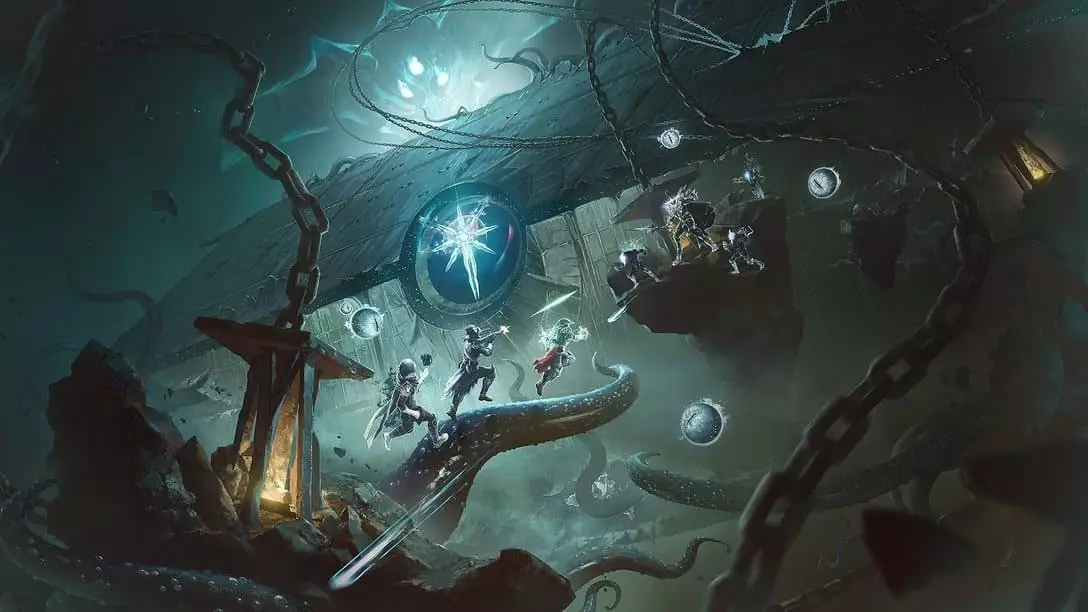In an unprecedented twist for the gaming industry, voice acting remains a crucial aspect of immersive gameplay. However, the upcoming Destiny 2 Heresy DLC, scheduled for release on February 4, 2025, will witness certain voice lines omitted due to the ongoing SAG-AFTRA strike. As the gaming community eagerly anticipates new content, they must grapple with the implications of this labor dispute. Bungie has confirmed that as a result of the strike involving video game actors, dialogues may be silent, with subtitles provided as substitutes. Yet, this scenario raises significant questions about the future of storytelling in games and the potential long-term effects on player engagement.
The Substitute of Subtitles: A Temporary Solution?
While Bungie’s adaptation to include subtitles as a narrative tool appears user-friendly—being customizable in size, color, and background—the fact that these elements are necessary at all highlights a critical underlying issue. Subtitles, by nature, cannot fully replicate the nuances and emotional resonance that a genuine voice performance delivers. This absence of voice acting may detract from the overall experience of players who seek an emotionally rich narrative, craving that connection with the characters they interact with.
Bungie aims to keep players informed by providing warnings before launching activities that contain these silent voice lines, signaling their commitment to ensuring players do not miss significant narrative moments. However, warnings only partially mitigate the disappointment that may arise from a lack of vocal performances. For a franchise as lore-rich as Destiny 2, the emotional weight carried by carefully crafted dialogues is irreplaceable; it speaks to the heart of the story-telling experience. Thus, as gamers navigate through Heresy, they may find themselves struggling to connect with the narrative on the same level as previous expansions.
At the core of this dilemma lies the ongoing SAG-AFTRA strike, which has seen union actors advocating for better protections in their contracts. Since July 2024, the protracted negotiations have revolved primarily around the contentious issue of artificial intelligence. The fear surrounding AI’s potential to replicate and exploit performers’ voices poses a legitimate threat to the livelihoods of many in the industry. Fran Drescher, president of SAG-AFTRA, emphasizes the need for the same protections afforded to actors in film and television, advocating for fair compensation and informed consent regarding AI’s use.
As companies are increasingly leveraging AI technologies, actors within the gaming industry find themselves at a critical juncture. The lack of clarity and agreement on these matters exposes the risks associated with unregulated AI usage—potentially commodifying their very identity without proper acknowledgment or compensation. Furthermore, the implications stretch beyond individual contracts; they signal a broader shift in how performance art is approached in the digital landscape.
The Ripple Effect: Broader Industry Implications
The ramifications of the SAG-AFTRA strike extend far beyond Destiny 2. Other studios, including Riot Games and Kojima Productions, acknowledge that their upcoming projects will similarly be compromised. The absence of custom voiceovers in new content, such as League of Legends skins, reveals how pervasive the effects of this labor dispute can be. The stark reality demonstrates that even influential game developers face disruptions in anticipation of opposite ends stemming from labor relations.
As studios navigate through these turbulent waters, the uncertainty surrounding the future of high-budget gaming titles remains alarming. The reliance on SAG-AFTRA talents underscores the gravity of this issue; it raises concerns about how future projects can continue to innovate and thrive without recognized voices that shape player experiences. With negotiations stalled and AI exploitation remaining unaddressed, the longer the strike continues, the riskier the landscape becomes for both industry professionals and gamers alike.
Though SAG-AFTRA has made steps to return to the negotiating table since the strike’s inception, the divide between the union and game developers remains palpable. The likelihood of a swift resolution appears slim if companies continue to resist providing protections against AI use. The future of gaming, particularly narrative-driven titles, hangs in a delicate balance.
As players gear up for the grand release of Destiny 2’s Heresy DLC, the hope is not merely for a successful gaming experience but also for a more equitable industry moving forward. The bond between gamers and storytellers relies upon the voices that bring characters to life, and now, as the industry grapples with its evolving relationship with technology, the outcome of this labor dispute holds implications that reach far beyond a mere game launch. The outcome will shape the landscape for years to come, defining the essence of storytelling in the realm of interactive entertainment.


Leave a Reply